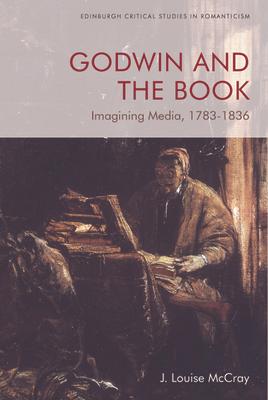Godwin and the Book explores a network of controversies concerning the relationship of media form to social futurity in Romantic-period Britain through the writing of the notorious philosopher-novelist William Godwin (1756-1836). It offers a fresh reading of Godwin's fifty-year corpus, using evidence from his fiction, philosophy and essays to argue that, throughout his career, he figured books and reading in particular ways in order to defend a set of inherited beliefs about intellectual perfectibility. In the process, it highlights many wider debates that marked out the culture of this period - including disagreements over the physiology of the mind, the ethics of novel-reading, and the social consequences of death - and considers how these debates were intertwined with the formal development of British prose in the period.

Godwin and the Book: Imagining Media, 1783-1836
Godwin and the Book explores a network of controversies concerning the relationship of media form to social futurity in Romantic-period Britain through the writing of the notorious philosopher-novelist William Godwin (1756-1836). It offers a fresh reading of Godwin's fifty-year corpus, using evidence from his fiction, philosophy and essays to argue that, throughout his career, he figured books and reading in particular ways in order to defend a set of inherited beliefs about intellectual perfectibility. In the process, it highlights many wider debates that marked out the culture of this period - including disagreements over the physiology of the mind, the ethics of novel-reading, and the social consequences of death - and considers how these debates were intertwined with the formal development of British prose in the period.